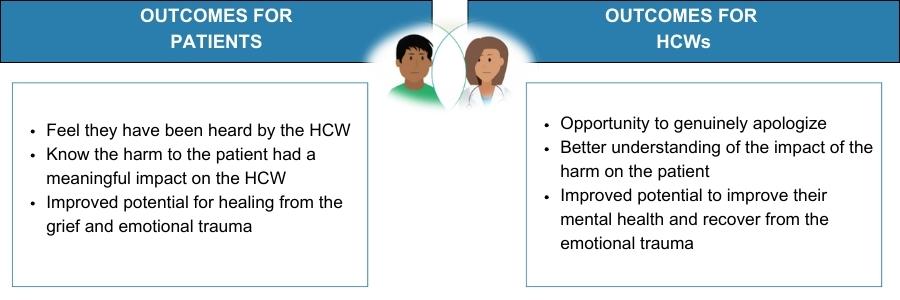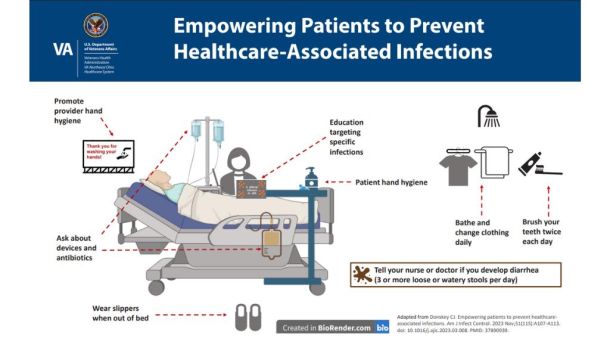Mutual Healing Program

It is well established that both patients/families and healthcare workers (HCWs) experience psychological trauma as an outcome of a harmful patient safety incident. This trauma leads to emotional reactions and potentially builds barriers between the two.

Aubin DL, Soprovich A, Diaz Caravallo F, et al. Support for healthcare workers and patients after medical error through mutual healing: another steps towards patient safety. BMJ Open Quality 2022; 11:e002004. Doi:10.1136/bmjop-2022-002004
Patients for Patient Safety Canada (PFPSC) is leading a novel initiative to help patients, their families and HCWs heal together after harm. Although we know such meetings occasionally take place informally, this will be the first formal program to be implemented in a healthcare setting.
A Mutual Healing Program enables sincere conversations in a safe environment between HCWs and patients to support both in their healing after a harmful incident. The seed for this idea came from the personal experiences of many members of PFPSC as well as findings from a research study (see video) that provided evidence that there is great potential for healing if the two parties meet to discuss their experience through genuine communications.

The findings from a research study provided evidence that there is potential for healing if the two parties meet to discuss their experience through sincere conversations. PFPSC worked in collaboration with Healthcare Excellence Canada to develop the Mutual Healing Program in consultation with the lead author of the aforementioned study (Dr. Diane Aubin) and to create guidelines for implementing the program in a healthcare organization.
Definition: A Mutual Healing Program is established by a healthcare organization to enable a sincere conversation (or more than one conversation as needed) between patients and/or families and healthcare workers (HCW) to support both parties in their healing after a harmful incident. This conversation is facilitated by a neutral facilitator. This is not meant to be a standalone program but integrated within the existing post-incident processes such as disclosure and incident analysis. It is also enhanced by key emotional supports for both the patients and/or families and the HCWs before and after the mutual healing conversation.
We are now seeking to pilot this program in healthcare organizations in Canada. This would be an opportunity for an organization to introduce a program that will support patients, families and HCWs through these difficult experiences. PFPSC is committed to collaborating with the pilot sites and supporting them with expertise and resources.
If you are interested in finding out more about piloting the Mutual Healing Program with our help, please contact us at hello@patients4safety.ca and share ideas using WeTransfer, First presented at ISQua’s 40th International Conference (24th – 27th September), Istanbul, Türkiye.


